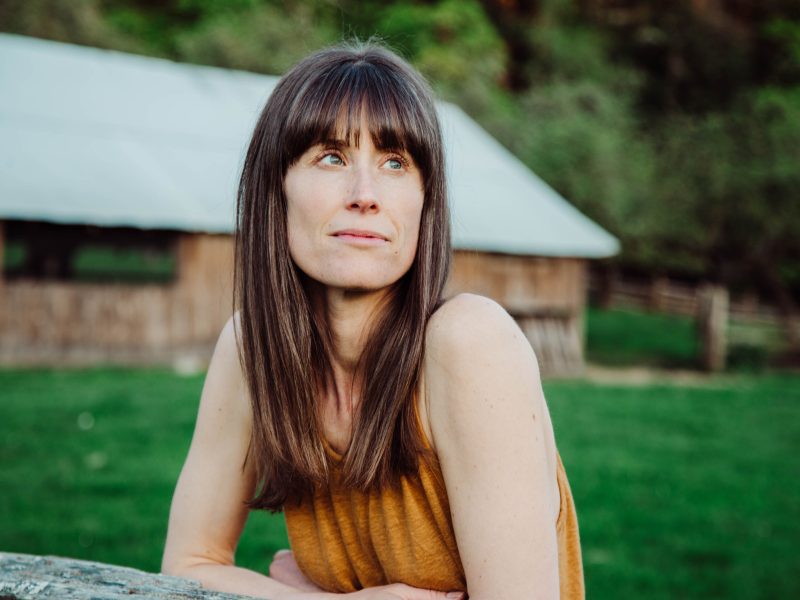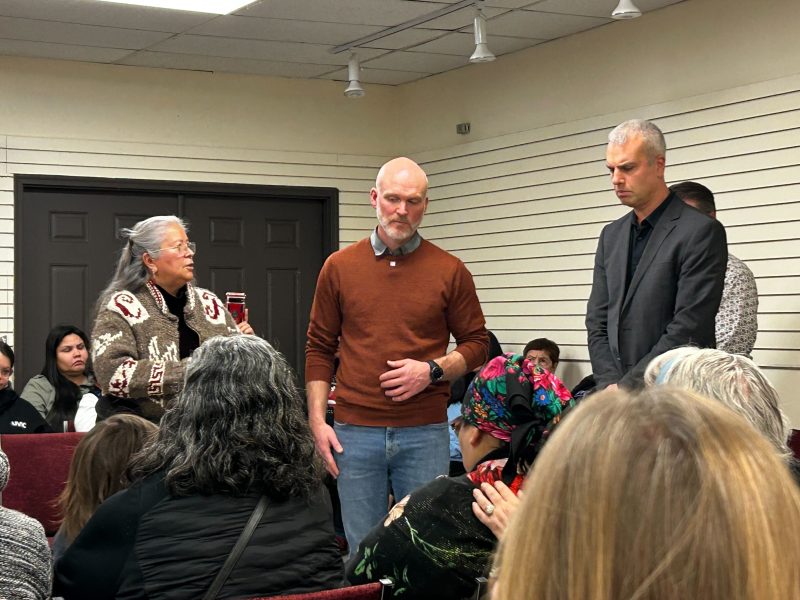
This is from the Cowichan Valley’s weekly newsletter. If you like what you’re reading, help grow this community by encouraging your friends to subscribe.
In an unassuming house on a residential street near the Duncan core, Colleen Fuller oversees her domain. Colleen is the manager of the Cowichan Valley Basket Society, a community soup kitchen and food bank, and on Tuesday just before lunchtime this week, the place was buzzing with a laid-back hum.
In the middle of it, Colleen is smiling. She accepts hugs and greets people, checking in to see how they are doing. People filter in and out, grabbing sandwiches on cheese buns, coffee and pumpkin pie. They sit at long tables and socialize, or not. Volunteers put out plates of food and clear the dishes. There’s no one at the door taking names — if you’re hungry and you’re struggling, you can come in and you can eat, Colleen says.
The soup kitchen is open 10 a.m. to 4 p.m. (2 p.m. in the summer), every day except Sundays and holidays, and you can hang out as long as you like so long as you obey the rules: mainly, no violence, no drugs. About 200 bowls of soup are served each day, Colleen says. It’s not just a place to get a bite to eat, it’s a community centre. It’s a place to build relationships and connect with support services. It’s a place to borrow a book or movie.
Beyond the loaves of donated bread that line shelves, individuals and families can go downstairs and register to collect a hamper of food — about a week’s worth — once a month. The society gives out close to 500 hampers each month, Colleen says. The biggest family that the food bank helps feed is more than a dozen people — a matriarch living in a large house with her children and their children.
It’s obvious Colleen loves her job. “I get my hugs and rewards here every day. Every day,” she says. She tells the story of a woman who felt guilty about taking the small bit of cash she had to play bingo. When she won $300, she gave it to the food bank. “She came in and she said, ‘I need to do this,’” Colleen says. “It was just a cry-fest.”
The soup kitchen and food bank are fuelled by the efforts of around 100 volunteers, and Colleen says she sometimes has to turn a few away. “The ones that are here, they don’t give up their shifts very easily. Common denominator — they all just want to form relationships and understand what these folks are going through and be supportive.”
I asked Colleen, who’s been doing this job for a decade, if people in this area are struggling more than they used to. She said the struggle has certainly become more visible. Ten years ago, a busy day for the food bank was 20 hampers. Now it’s more than 40. The main thing is that financial support — welfare, disability payments, etc. — have barely risen in 10 years, while the cost of everything else certainly has, she says. That’s especially true for housing. What do you do with $375 for rent?
For those in need of additional help with mental health, trauma and addictions, Colleen says people face barriers in accessing treatment and services. Those who numb the pain with drugs can quickly get sucked into a harmful cycle. “The drugs out there right now are way stronger than they’ve ever, ever been,” Colleen says. “It’s a very short fall.”
I asked Colleen what she sees in her day-to-day that should be front page of the newspaper, but isn’t. She knew her answer before I finished the question. “The miracles — the miracles that happen. The ones that, despite all odds, get up every morning and smile. Seriously, they have my admiration. There are heroes and heroines that live on those streets. And how they can get up in the morning and then turn and help their fellow man — I think we need to learn from that.”

What do you see in your everyday life that should be making headlines, but isn’t? Send me an email — I’d love to hear from you.
News of the week.
- The Municipality of North Cowichan is mulling over a public engagement plan on the future of the municipal forest lands, the Cowichan Valley Citizen reports. Citizens successfully pushed North Cowichan to scale back logging this year and reconsider its forestry practices.
- North Cowichan has removed special rules for pit bulls and related dog breeds from its animal bylaws, the Cowichan Valley Citizen reports. Council heard that there’s little evidence that breed-specific legislation makes people safer.
- About 120 workers are off the job at the Western Forest Products sawmill in Cowichan Bay, My Cowichan Valley Now reports. The company says the move is in response to poor market conditions, while the union says it’s a bargaining tactic as the two parties head into negotiations next month.
Let’s gather.
- March 28: Join the Cowichan Women Against Violence Society for a screening of A Just Society at the Cowichan Performing Arts Centre. The one-hour documentary focuses on the opioid overdose crisis and its impact on people and communities. A discussion will follow the film.
- March 30: Time for spring cleaning! Pitch in at the Crofton community clean-up and barbecue.
- March 30: The Brass Knuckle Derby Dames host their roller derby season opener against the Rink Minx out of Campbell River. Stay for the after party, featuring a beer garden, food trucks, and a roller disco with skate rentals available. This event also closes out this year’s Cowichan Valley International Women’s Day Festival.
- April 4: Join the Cowichan Valley Regional District in Shawnigan Lake for a talk on how struggling communities can learn to thrive. Doug Griffiths presents 13 Ways to Kill Your Community, which presumably relies on the power of reverse psychology.
If you know about an event that you think should be included in this newsletter next week, send me a note. [end]



